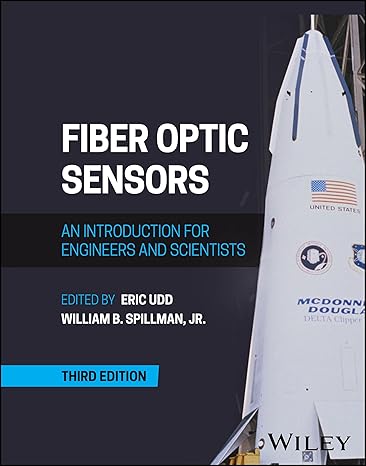Fiber-optic sensors are a powerful class of sensor that uses high-bandwidth optical fibers to convey a large amount of measured information through a single fiber. The advantages of such a mode of measurement are clear: they are intrinsically safe in explosive environments (no sparks), lightweight, compact, robust, and potentially inexpensive. As a result, their uses are manifold for a wide range of physical and chemical phenomena including temperature, strain, pressure, acoustic fields, position, velocity, rotation, acceleration, electrical current, liquid level, biochemical composition, and chemical concentration.
Fiber Optic Sensors introduces and familiarizes the reader with a broad range of fiber optic sensor techniques and applications. The latest edition of this popular text builds upon the sound introductions to the fundamentals of the topic provided by earlier editions by introducing the latest technologies that have been developed in recent years. Gathering the latest research and publications on the subject in one place, the book provides a comprehensive look at fiber optic sensors with an eye to what’s new in the field.
Readers of Fiber Optic Sensors’ third edition will also find:
- An exploration of the technology within new applications in areas such as aerospace, defense, oil and gas, medical, electric power, manufacturing, environmental, and robotics
- Updated chapters on the emergency of interferometric sensors, distributed sensing, and critical components
- A new and fully-updated comprehensive index
Fiber Optic Sensors is a useful reference for engineers, scientists, technical managers, as well as advanced undergraduate and graduate students.









Be the first to review “Fiber Optic Sensors – An Introduction For Engineers And Scientists, Third Edition”